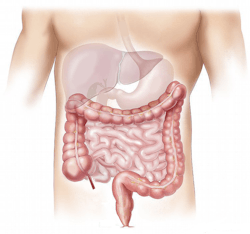In a study published in the journal Gastroenterology, researchers at the Icahn School of Medicine at Mount Sinai describe a troubling increase in early-onset colorectal cancer and precancerous polyps, based on a large, nationally representative study of patients under age 50 who underwent colonoscopy. It was the first large-scale study to look at precancerous polyps in this age group, according to a news release.
“We have known for many years that rates of colorectal cancer are rising in individuals younger than 50, prompting several medical organizations to recommend lowering the screening age from 50 to 45. What has been missing until now is confirmatory data of the prevalence of precancerous polyps in younger individuals. Because precancerous lesions are not reportable to regional or national health agencies, we have not had this degree of information to guide our recommendations. Our study provides an important piece of the puzzle and supports the recommendation changing the screening age to 45,” says lead author Steven H. Itzkowitz, MD, FACP, FACG, AGAF, Professor of Medicine (Gastroenterology), Icahn School of Medicine at Mount Sinai.
Increasing age, being male and White, having a family history of colorectal cancer, and having had colonoscopies for reasons of bleeding or screening, were all associated with higher odds of advanced premalignant lesions (APLs) and colorectal cancer. Among patients aged 45-49, 32% had neoplasia (precancerous or cancerous lesions considered forerunners to colorectal cancer). Nearly 8% had APLs, and 0.58% had colorectal cancer. Importantly, the researchers found that the prevalence of neoplasia and APL among those 45-49 were almost as high as those of 50-54-year-olds, and the rates of colorectal cancer were even higher. Moreover, among 40-44-year-olds, rates of APL were almost as high as for those aged 45-49, and colorectal cancer rates were comparably high.
Early-onset colorectal cancer accounts for approximately 12% of all colorectal cancer cases, with incidence increasing by 2.2% annually from 2012-2016, and mortality increasing by 1.3% per year from 2008-2017.
“The big driver of this study was the need for really good real-world data to inform screening recommendations,” says Itzkowitz, noting that a recommendation to begin screening at age 45 was put forward by the American College of Gastroenterology (ACG) for African Americans in 2009, but only more recently for all individuals regardless of race/ethnicity by the American Cancer Society (2018), the United States Preventive Services Task Force (2021), and the ACG (2021). “The data confirm what we have been seeing in the clinic — that 45 is now the new 50,” says Itzkowitz. “Colon cancer used to be considered a disease of old age, and that is no longer true.”
The team analyzed data collected between January 1, 2014, and February 5, 2021, from high-quality colonoscopies from 123 AMSURG (a division of Envision Healthcare) ambulatory endoscopy centers across 29 states that report their results in the GI Quality Improvement Consortium (GIQuIC) Registry.
The study included 131,000 patients ages 40-49.

